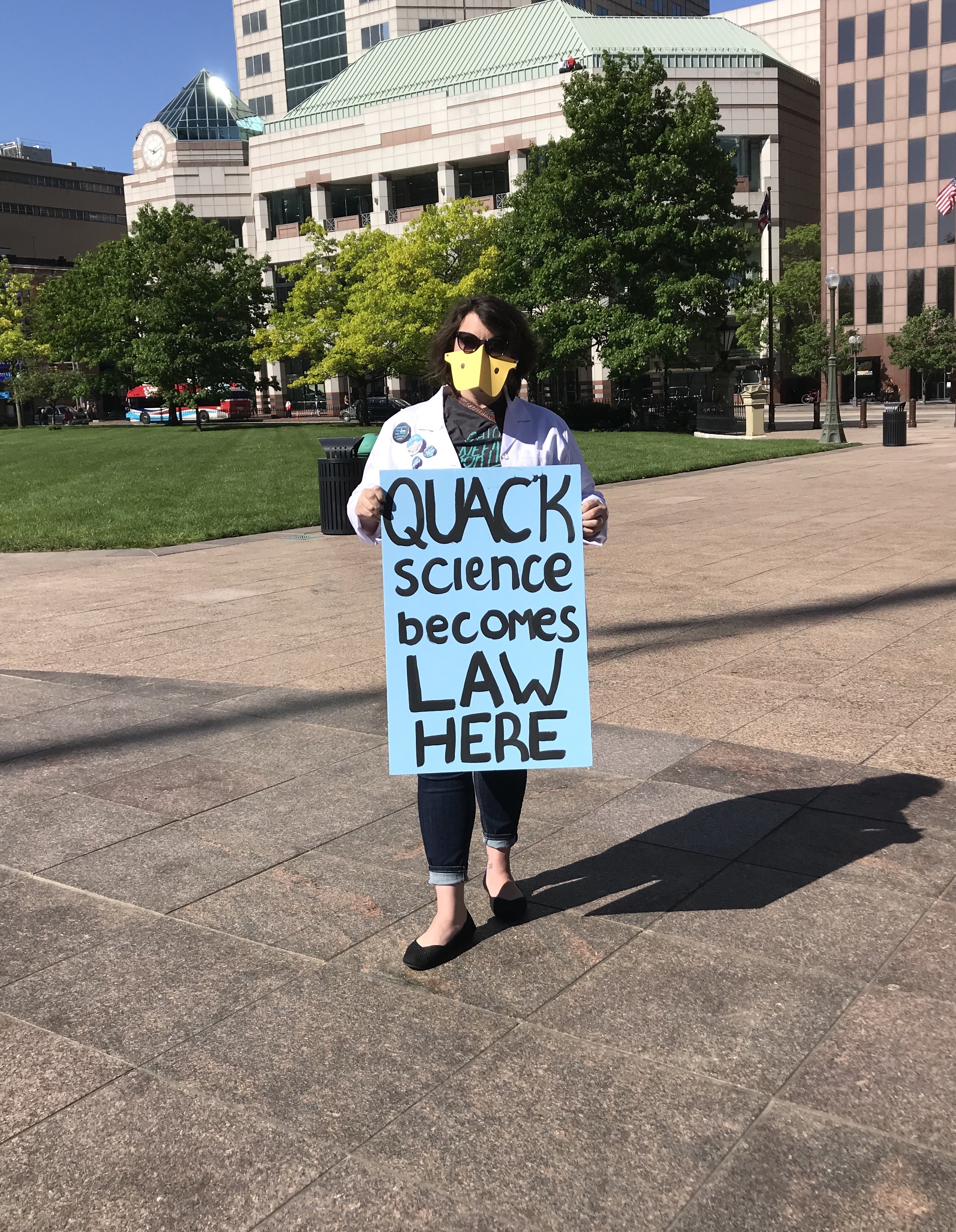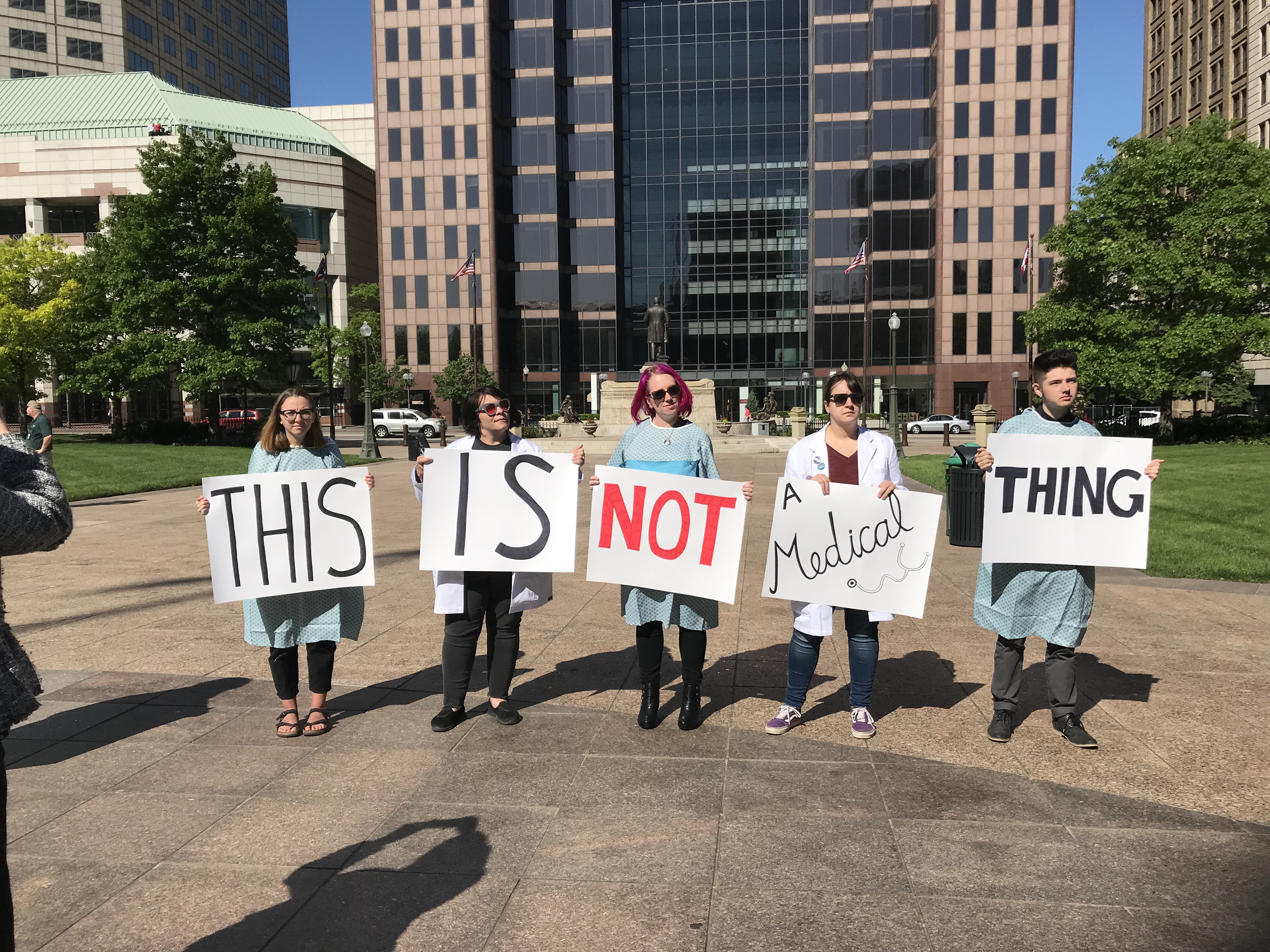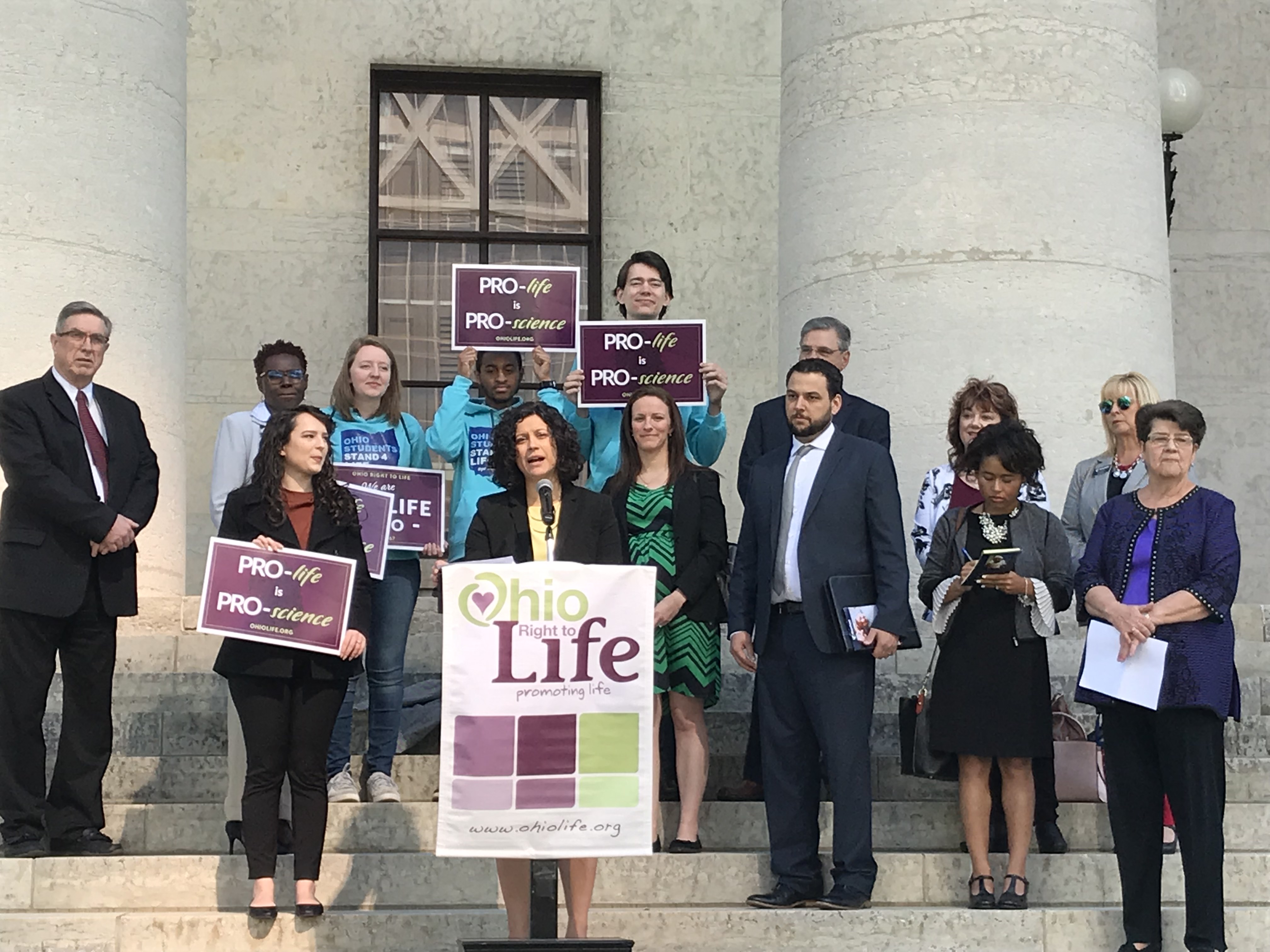Three days ago, Christa Brown, associate director of ministry services for Heartbeat International, helped a woman named April with a question of great magnitude: Could she reverse her in-progress chemical abortion?
Just the day before, April, a 37-year-old healthcare professional, had begun the chemical abortion, certain that the decision was right for herself, her child, and her family.
But that quickly changed.
“By Sunday 8 a.m., when she called me, she was sure she wanted to continue her pregnancy and reverse her abortion,” Brown said at a press conference yesterday.
Within two hours of calling the helpline, April was able to begin a protocol known as abortion pill reversal, and she was on her way to saving the life of her preborn child.
“There are thousands of other ‘Aprils’ out there who do not know that abortion pill reversal exists,” said Brown. “As a mom and a nurse, I think the hardest thing to hear is, ‘I wish I had known reversal was possible.’”
That’s why pro-life advocates in Ohio are promoting a forthcoming bill which would make information on abortion pill reversal a part of the state’s informed consent process before a woman has a chemical abortion.
Tweet This: “As a mom and a nurse, I think the hardest thing to hear is, ‘I wish I had known reversal was possible.’”
Pro-life Is Pro-Science
Supporters of the bill at yesterday’s press conference carried signs that read, “Pro-life is Pro-science,” while abortion activists heckled the speakers with cries of “Lies!”, brandishing their own signs which rejected the scientific evidence for the protocol.


Pro-abortion activists appeared at the press conference to heckle pro-life advocates. | Photos Courtesy: Heartbeat International
Otherwise known as the “abortion pill” or RU-486, chemical abortions involve two drugs: mifepristone and misoprostol. Mifepristone, the first pill, destabilizes a pregnancy by blocking progesterone, the natural hormone needed to sustain a healthy pregnancy. To finish the abortion, misoprostol induces labor, forcing a woman’s body to deliver the baby.
According to the Ohio Department of Health, 5,345 chemical abortions took place in the state of Ohio in 2017.
For women like April who regret beginning that process, abortion pill reversal offers a last chance to save a life. Developed by physicians George Delgado and Matthew Harrison in 2007, the treatment works by giving women extra progesterone up to 72 hours after a woman takes the first chemical abortion pill. Last year, Delgado released a study showing that 64-68 percent of women who used the protocol were able to give birth to a baby with no greater risk of birth defects than the general population.
Managed by Heartbeat International, the abortion pill reversal protocol is backed by a 24/7 helpline (877-558-0333) and a robust provider network of more than 800 clinicians (33 in Ohio), known collectively as the Abortion Pill Rescue Network.
Since its inception, abortion pill reversal has saved more than 750 babies.
Tweet This: Since its inception, abortion pill reversal has saved more than 750 babies.
Reversing a Reluctant Decision
Formulated by Ohio Right to Life and supported by Citizens for Community Values and Students for Life, the bill is being sponsored by pro-life state senators Peggy Lehner (R) and Niraj Antani (R).
Similar legislation has been enacted in eight states (Arizona, Arkansas, Idaho, Kentucky, North Dakota, Oklahoma, South Dakota, and Utah), and federal legislation was introduced in Congress last month.
“We oppose abortion on the grounds that it robs the unborn human individual the dignity of life and harms the mother in the process,” said Stephanie Ranade Krider, vice president and executive director of Ohio Right to Life. “Abortion is a permanent ‘solution’—death—to the mother’s problems—often poverty or lack of support, which remain unsolved by her abortion.”

Stephanie Ranade Krider on the value of adding information on abortion pill reversal to Ohio's informed consent process before a chemical abortion | Photo Courtesy: Heartbeat International

Jor-El Godsey, president of Heartbeat International, a global network of more than 2,600 pregnancy help organizations which oversees the Abortion Pill Rescue Network | Photo Courtesy: Heartbeat International
“But the good news today is that if a woman takes the initial step and takes the first pill to begin a chemical abortion, there are steps she can take to reverse it if she changes her mind,” she said. “She just needs to know where to go, and that’s what this legislation is all about.”
Krider says the legislation builds upon the state’s current informed consent law, which ensures that a woman is fully informed about the process and risks of abortion, the resources available to her, and the state of development of her unborn baby.
[Click here to subscribe to Pregnancy Help News!]
“I think there’s one thing we can all agree on, and that is no woman should be forced to have an abortion which she doesn’t want,” said Sen. Lehner, who spent over 40 years as an activist in the pro-life movement before serving in the legislature.
“I met dozens and dozens of women who were struggling with the abortion decision, both before and after the fact,” she said.
“They came from all walks of life, some were married with children, some of them were frightened young teenagers and everything in between. Regardless of their age, their wealth, or their marital status, they all had one thing in common: They were terribly conflicted about the choice they were about to make. Also, in virtually every case, there was someone close to them pushing them to choose abortion. It might be a parent, the father of the baby, sometimes a close friend…
“Reluctantly, the decision would be made, but rarely was it a resolute decision. The reality of what she was about to do didn’t really hit home often until she found herself laying on a clinic operating table.”

Sen. Peggy Lehner addresses the press on her experience helping women before and after the trauma of abortion. | Photo Courtesy: Heartbeat International
It is that hard-hitting reality that supporters of Ohio’s bill hope to help women navigate. While surgical abortions cannot be reversed, the hope of reversing a chemical abortion persists for potentially thousands of women across the country and around the world.
“We believe that no woman should be forced to complete a procedure she no longer desires and abortion pill reversal offers a last chance to choose life for preborn children,” said Brown. “All women seeking chemical abortion should be made aware that reversal is possible and help is available on our hotline and website.”






